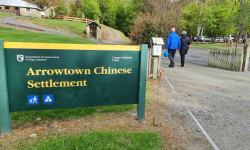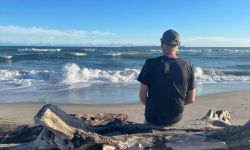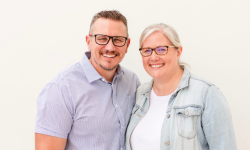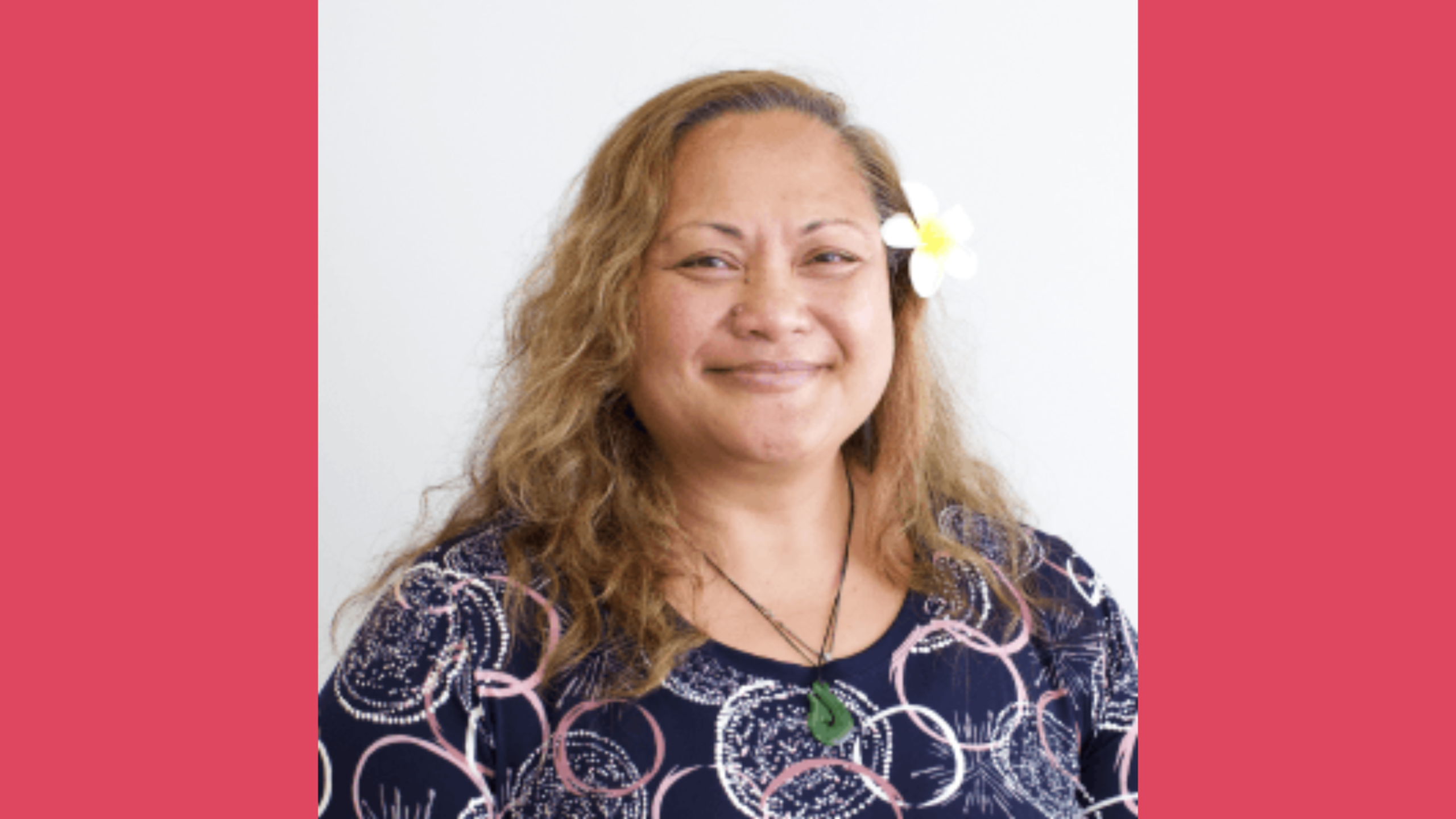
Woman of the month is a column provided by Baptist Women New Zealand. More articles, resources and event information can be found at women.baptist.nz
Reti Ah-Voa has worked as human resources manager for a Middle East international mission agency, studied and guided students at Carey Baptist College, and is currently Regional Leader of the Northern Baptist Association.
Early Years
When Reti’s parents wanted to move from Samoa to New Zealand for their children’s education, they faced a tough decision. Under 1970s immigration laws they could only bring four children. They already had six. They left some children with an aunt and with grandparents. Two-year-old Reti, sixth of what became nine children, was brought here, and can even remember a little of leaving Upolo.
Her transliterated family name, Ah-Voa, comes from her Cantonese paternal grandfather who migrated to the island as a labourer, when Samoa was a territory of Germany. She still feels that culture. ‘It’s embedded in our food,’ she says as an eager cook relishing Chinese food, although she never saw Upolo from age two to 27. She grew up in the then white culture of Mangere East and Mangere Central, where even her school friends were white.
Did that affect her? ‘I know how to hold the space of being a minority.’ Reti observes. ‘It’s my normal mode of operation. In school, in the Catholic Church, and at university I was accustomed to being myself while being a minority. And in our Catholic church there was a very workable version of multi-cultural community. Each group, Samoans, Tongans, Pakeha and Cook Islanders, led a service once a month. I never felt disengaged. We all had a part.’
The Catholic Church gave Reti other benefits too. She was serious about God as she grew, knowing about Jesus, and with a thoughtful bent to listen to God. The nuns saw Reti’s leadership and extended it by getting her teaching and minding younger children from the age of 12, along with her 15-year-old brother. That was significant in her development of self.
Reti looks with warmth to the example her parents gave. They made the best of what they had and worked hard in uneasy times. How to keep food on the table with so many school-age children!? At times without electricity or gas, they occasionally cooked outside. They modelled hard work and Reti knew she was loved. Indeed, she was something of the golden child. She did well at High School and gained privileges along with older siblings who had paved some of the way.
She was confident too. Early on she received and enjoyed ballet lessons, eventually learning for four years, even though when at only six or seven she had to catch a bus by herself. As she grew, people chose her for more leadership roles—captain of the debating team, basketball, volleyball at high school then at university. Touch rugby when it became popular.
Building Christian Faith
At University, Reti studied Commerce. She also explored new Christian ideas, enabled by the Christian ministry in the university.
‘I resonated with the message,’ she recalls. ‘I believed I was a Christian but it didn’t seem to be the same understanding as the students who would witness to me. My brother introduced me to AoG and I went forward for prayer. I grew further with the Christian Fellowship at Uni and the Luis Palau mission in the late 1980s. I was at last clear what it is to be Christian, to have a personal relationship with Jesus. Joining the Otara Youth for Christ was formative. Several of us from the Catholic Church were born again and discipled.’
But the studies? Reti hesitated over her Commerce course, left university without completing and was hired as a claims clerk in ACC. She eventually did 15 years for ACC, 10 of those in management and some of the time in Wellington. People saw her performance and put her forward for the next promotion. She merely took the suggestions rather than actively managing her career.
Reti joined a Bible Chapel, but when it closed in 1999, she joined Mangere Bridge Baptist. That church became a highly meaningful spiritual home base as she went to live overseas and then came back at times. She was commended, loved and warmly welcomed by this church. (Subsequently she has also several times been an elder there.)
Her first step into missions was a three-month trip in 2000 to the Middle East. Reti flew home clear that there was a role for her in mission and management, but that she needed to grow her horizons and gain academic standing. That turned her to completing a Graduate Diploma in Business Administration, and then a year at Carey Baptist College, in 2004.
A Year at Carey Baptist College
To prepare for long-term missionary work Reti studied Cross Cultural Missions and World Religions. She included assignment options like Christian sexuality, healthy singleness, and women in ministry. Busy, was the word. She combined study (four days), work for ACC (one day), with ministry – often to single people.
Reti mentions that Carey gave her a special gift—a totally changed view of being single. She puts it, ‘I no longer think of being single as a transition space. I think of it as complete. It’s up to God. All that matters is that I live a life surrendered in obedience to God. My marital status is secondary.’
Mission Work
After a further 14 months learning Arabic language and culture, Reti moved to Cyprus, and served in the International Service Office of her Middle East mission, running the office and managing human resources for the fellowship worldwide. She covered recruitment, selection and member care, applying the best of her secular training, her theological studies and her life experiences confidently in the leadership roles. On the ground she did street evangelism and led in an inter-church youth group and international student outreach, giving hospitality to Christian and Muslim families.
Her horizon grew. Local and Middle Eastern travel took Reti into leading Summer schools and teaching English. Running teams became her forte, she revelled in it for 10 years. Then she planned a year’s leave in New Zealand to be with her elderly parents, while hoping for a door to open to go to Jordan. She waited and waited. It felt like being in limbo, challenged her faith and survival skills, and became unsettling. The door never opened and at last it felt right to settle back in Auckland.
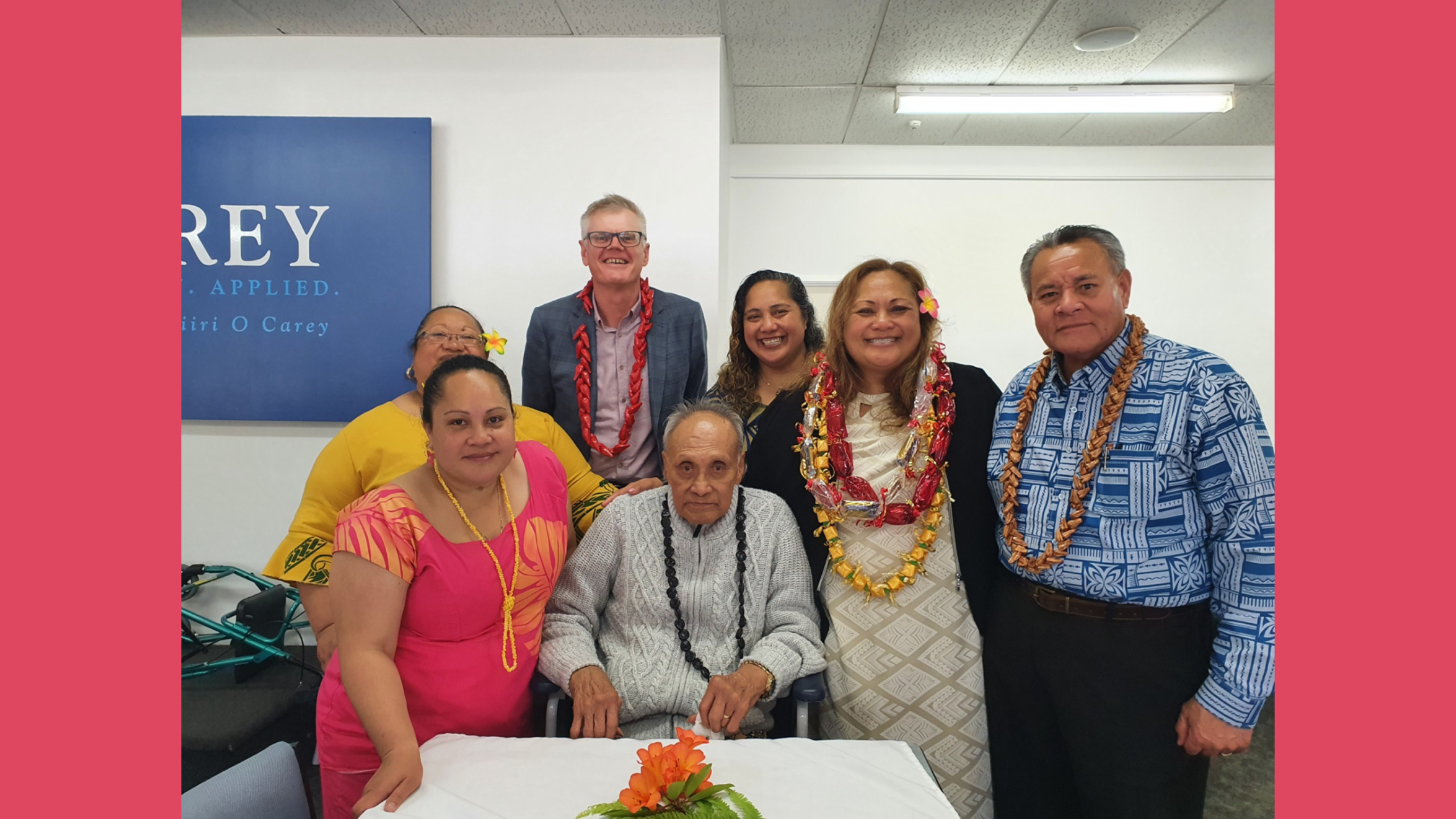
On staff at Carey
Returning to Carey College to be on staff was unexpected. Charles Hewlett, then principal, chatted to Reti at a funeral, and the eventual upshot was an invitation for her to mentor the Polynesian students. Initially informal, it later grew into a formal position with other roles in ministry and consulting.
Carey College was a hub in the NZ Baptist scene, with a lot of organisational knowledge to pick up. Two focal points for Reti at Carey became women and Pasifika people, and she achieved good success in this environment. Under her coaching Pasifika and Maori students grew stronger academically and flourished in their courses. People sought her out for advice. The job grew to three days a week. She was at Carey through the first Lockdown and well into 2020.
Towards the end of this time, Reti began to consider a broader role. She had a lot to offer – over 40 years of ministry, exposure to wide expressions of Christianity (Catholic, Pacific Island Presbyterian, Bible Chapel, AoG, Reformed, Nazarene, some of these experienced overseas), secular and Christian management, background in the NZ Baptist scene and culture, as well as her cross-cultural strengths. She was ready for a new challenge when the Baptist leadership came to her.
Regional Leader, Northern Baptist Association
This is Reti’s current role, at the time of writing.
Reti’s task as Regional Leader focuses her on supporting the health and development of the churches in the Northern Baptist Association (NBA). The NBA consists of 120 Auckland and Northland churches, and its aim is to bring gospel renewal to people and places in their neighbourhoods. Reti has the responsibility of encouraging church leaders in their leadership, prompting them in turning church attendees into active disciples, and collectively making the best use of resources to actively and effectively reach out with the love of Christ. She manages staff, manages risk, and fosters connection within the NBA and from there with other Baptist leaders and the central Baptist Union.
‘When I look at Baptist ecclesiology,’ Reti comments, ‘I see that we are a covenant people, pulling together, who yet have autonomy. That’s a wonderful kind of covenant that draws us. I long for churches to get outside their walls. I dream of a day when I go to visit a church and they’re not there because they’re serving in the community, even picking up rubbish on a community day. Perhaps they could be community-minded in the morning and then return to their church and reflect.’
Reti also thinks about youth. ‘We need to give young people the keys earlier. We give car keys early. We should release the young people in church earlier. Because we are not doing so, many are absent. Our behaviour does not match our intentions. We need to give them responsibility and hear their voices, including preaching.’
On the ethnic churches: ‘Let’s make sure the ethnic pastors are not on the periphery. Let’s enable all to be freely and fully themselves in spaces that are for anyone, feeling as valued as one another. When we become truly multi-cultural I could go to any church in New Zealand and express worship in a culturally meaningful way, such as a Samoan dance, and it would be valued.’
The pandemic threw quite a few things out of order. Reti is open to looking for what changes God may be asking, changes that can come as churches return to their regular gatherings. What if God is asking us to change some of our ministries? As a leader, Reti wants to lean close to Jesus, hear what he says and help other people listen too.
Has there been a disadvantage being a woman in a position like this? Reti is relaxed. ‘No. I am part of a team. This may not be so for all women, but for me many times it has been an advantage to be a woman and a Samoan.’
She can philosophise on it now. ‘When I look over my life, even from a young age, God’s hand was evident. After becoming a believer, however, I prayed that prayer, “Lord, use me. My life is in your hands.” I found God can make a life extraordinary. There may be a door he does not open for you that you dreamed of when you were a child (like marriage and motherhood—I’m okay with that now) but then he opens up doors one never dreamed of—living in foreign countries, making a difference in the lives of people and cultures in faraway places, being transformed by people and places. For me this includes the Middle East and this Baptist Association in Aotearoa.
‘The Holy Spirit is still leading our congregations to press in to hear him, to hear together what the Spirit is saying and doing. What new behaviours, patterns or rhythms are before us? Let’s not settle for what was normal.’
Oh well, Reti, I like your point there. And you have shown it in your life. Whether it was normal or not, your goal has been to encourage and enable others, and if that has required cultivating remarkable gifts, you did not shirk from the hard work that enables you to lead today.
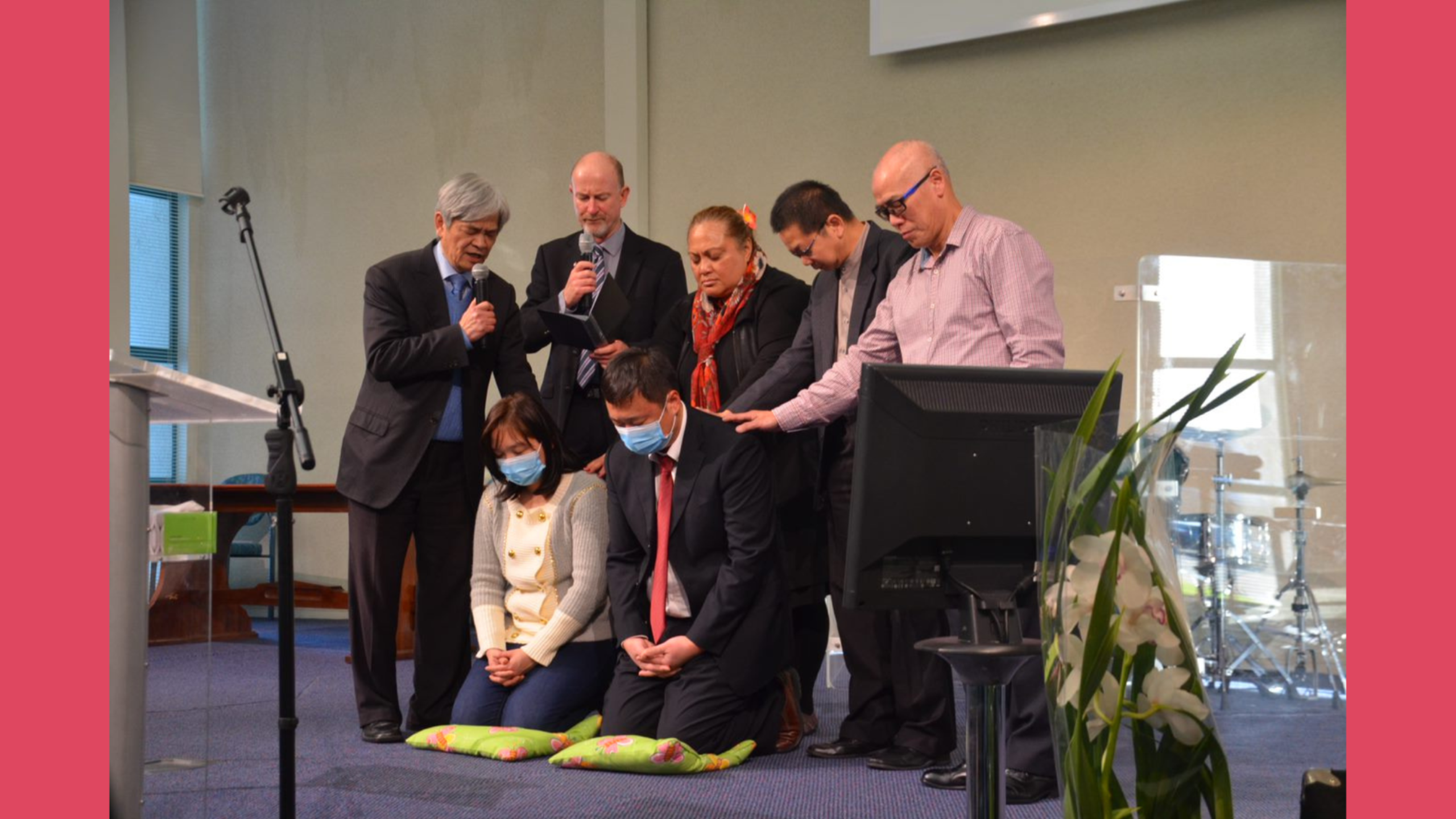
Sources
Personal Interview 21 July, 2022
New Zealand Baptist, April 2007
